What is an AI Agent? A Brief Explainer
So, what exactly is an AI Agent? Unlike traditional AI that operates within predefined rules, an AI Agent is a software component capable of acting on behalf of a user or system. It operates on a perceive-think-act framework: it perceives its environment and data, reasons on that information to generate insights, and acts through autonomous or assisted decisions. This allows agents to orchestrate complex workflows, coordinate multiple specialized sub-agents, and apply logic to solve problems with a high degree of autonomy. They can proactively anticipate needs and adapt to changing conditions, using advanced contextual reasoning for decision-making. This evolution from static tools to dynamic, problem-solving partners is what makes AI Agents uniquely potent for driving tangible business transformation.
How AI Agents Drive Commercial Transformation
AI agents are a versatile force for enhancing commercial operations and deepening client relationships. By framing their capabilities around specific commercial functions, organizations can unlock unprecedented efficiency and growth. A recent study shows that many companies are integrating these AI-powered tools, with 58% already deploying some kind in specific business units and another 35% actively exploring implementation [3]. Considering today’s landscape for large enterprises across many industries, four major areas emerge as the most relevant for applying AI agents in commercial functions. These areas provide a structured lens to understand where organizations can capture the greatest impact.
1. Revolutionizing Client Relationship Management
The impact of AI Agents is particularly strong in commerce and client relationship management. Bouygues Telecom has partnered with Artefact to provide a compelling real-world example. Faced with a complex array of mobile offers that led to customer frustration, the company launched a generative AI-powered sales assistant [7]. Built on Google’s Agent Builder, the assistant provides 24/7 guidance, handling natural conversations and tailored recommendations. It synchronizes the chat with the website, guiding users through their purchase journey like an in-store assistant.
“We were able to convert this behavior into a prompt for Vertex AI Agent Builder. Early testing showed real potential.” — François Gette, Lead Open Innovation, Bouygues Telecom on using Google Cloud’s AI platform [7].
This technology isn’t just for text-based assistants. In another strategic implementation for a major CPG (Consumer Packaged Goods) company, AI voice agents are being developed to act as powerful allies for the B2B telesales team. The main goal is to help the team reach thousands of smaller customers that were previously unreachable by phone. They are being trained to make smart upselling suggestions, like offering a better price on a larger product bundle. To create a more human and local connection, the agents can even speak with different regional accents, matching the customer’s location. The potential benefits are substantial: increased sales from a previously untapped market, enhanced operational efficiency, and providing a high-quality, personal touch on every single call.
This shift is validated by industry research, which shows that nearly half (46%) of business buyers would now choose an AI agent over a person simply for faster service [10]. On a massive scale, Bank of America’s virtual assistant, Erica, has processed over 1.5 billion customer interactions, demonstrating the power of agents in maintaining always-on, effective client relationship management [6].
The vision of Human-AI collaboration becomes tangible in the sales-force daily workflow. Instead of starting the morning manually sifting through CRM data, a salesperson receives a proactive briefing from their AI agent. “Good morning. Your top priority is the ACME Corp renewal, which is at risk due to low feature adoption. I’ve analyzed their usage data, drafted a personalized email highlighting the value of underused features, and suggested a 15-minute call. Would you like to approve and send?” This agent handles the data synthesis, freeing the salesperson to focus on high-value strategic conversations.
2. Boosting Commercial Efficiency
Often overlooked, the commercial back-office is a prime area for AI agents to drive significant efficiency gains. Agents excel at automating the high-volume, repetitive tasks that consume valuable time, such as customer and product registration, order management, and status inquiries.
For instance, a manufacturing distributor can use an AI agent to process purchase orders sent via email. The agent reads the attached PDF, validates the customer’s account, checks SKUs against inventory in the ERP, and enters the order into the system. This not only reduces order processing time from hours to minutes but also eliminates costly manual data entry errors, leading to significant operational cost reductions in related functions.
Another compelling application of AI agents in commercial efficiency lies in enhancing salesforce productivity through synthetic personas and augmented business intelligence (BI). The first involves generative AI applications that, trained on historical customer interaction data, can simulate a variety of customer profiles. Sales representatives engage with these virtual personas through chat-based scenarios, enabling them to practice and refine tailored approaches in a risk-free training environment. The second application addresses a common challenge faced by many organizations: democratizing data-driven decision-making without burdening the salesforce with time-consuming dashboards or static reports. Augmented BI assistants provide an elegant solution by delivering personalized performance insights through conversational interfaces. For example, a field salesperson could access real-time sales metrics via a familiar tool like WhatsApp, making critical information available seamlessly within their daily workflow.
3. Optimizing Revenue Growth Management (RGM) and Pricing
AI Agents are uniquely equipped to tackle the complexity of RGM. By analyzing real-time market data, competitor pricing, supply chain logistics, and historical sales trends, agents can recommend and even execute optimal pricing and promotion strategies. They can simulate the impact of a price adjustment or a promotional offer on both revenue and margin, allowing teams to make decisions based on data, not just intuition.
For example, consider a consumer goods company using an AI agent to monitor competitor prices on e-commerce platforms. The agent could autonomously adjust the price of its flagship product by a few cents to win the digital shelf, or flag a high-margin promotional opportunity when a key competitor goes out of stock, directly maximizing revenue without constant human intervention.
4. Enhancing Sales Force Performance and Route-to-Market (RTM) Strategy
This is where AI agents evolve from analytical tools into strategic partners for the sales force. For RTM strategy, they can sharpen marketing campaigns by serving as AI-powered persona generators [8], analyze vast datasets to identify underserved segments, and model expansion opportunities.
A compelling example of this potential is seen at Sanofi, which is using agentic AI to transform its marketing and commercial activities. Rather than simply building a Q&A system, Sanofi is deploying AI agents that can directly access and analyze vast amounts of data from market research to provide strategic insights for new product launches, a process that promises to accelerate time-to-market and optimize commercial impact [9].
From Implementation to Impact: A Strategic Outlook
The adoption of AI Agents delivers a clear and measurable return. Research indicates that organizations implementing these solutions achieve an expected ROI of 13.7% [3]. This highlights the tangible value of agentic AI, reinforcing its potential as a strategic driver for efficiency and business impact.
However, realizing this potential requires a strategic approach that moves beyond technology alone. While many organizations are experimenting with Agentic AI, it’s notable that the majority of these projects do not advance beyond the proof–of-concept stage. The journey demands meticulous planning:
- Strategic Adoption: Organizations must identify high-impact areas for deployment. Value is typically realized within 13 months, with implementations taking an average of 4 to 6 months, according to Artefact internal studies.
- Integration with Existing Systems: Crucially, AI Agents require seamless integration with existing enterprise systems such as CRM and ERP to unlock their full potential.
- Combining Technology with Cultural Change: Successful implementation necessitates cultivating a culture that embraces AI as an augmentation of human capabilities.
Of course, this journey is not without significant friction. Seamlessly integrating agents with legacy CRM and ERP systems is a monumental technical and financial undertaking, often representing a multi-million dollar investment in deep architectural work and data governance. Equally challenging is the cultural shift; this is not simply a matter of new software training but of rewiring core workflows and building trust in automated recommendations. Successfully navigating these hurdles requires sustained executive sponsorship and a deliberate change management strategy, confirming that AI agent implementation is a deep, strategic transformation, not a simple plug-and-play solution.
The future of this technology is undeniably agentic. Gartner forecasts that by 2028, 33% of enterprise software applications will include agentic AI [5]. Concurrently, AI-powered workflows are expected to spread quickly across organizations, moving from niche pilots to become integral parts of core business operations.
Despite the transformative potential of agentic AI, scaling remains a significant challenge. Gartner highlights that while prototyping is relatively easy, over 40% of projects risk cancellation by 2027 due to unclear value or rising costs, and only about a quarter advance beyond the proof-of-concept stage [4]. This underscores the gap between experimentation and sustainable, production-level adoption.
Conclusion
AI Agents are set to fundamentally redefine commercial efficiency and catalyze true business transformation. By moving from a discussion of technology to a focus on solving core commercial pains, businesses can unlock unprecedented levels of productivity, significant cost reductions, and enhanced customer satisfaction. Embracing digital transformation strategically, fostering robust human-AI collaboration, and investing wisely in these intelligent systems will empower businesses to fully harness the transformative power of AI Agents, securing a decisive competitive edge and ensuring sustainable revenue growth in the age of AI.
References
- Precedence Research. (2024). AI Agents Market. https://www.precedenceresearch.com/ai-agents-market
- Gartner. (2025). Innovation Insight for the AI Agent Platform Landscape (Leinar Ramos, Gabriel Rigon, et al.). 26 March 2025.
- BCG. (2025a). AI Shifts IT Budgets to Growth Investments. https://www.bcg.com/publications/2025/ai-shifts-it-budgets-to-growth-investments
- Gartner. (2025). Gartner Predicts Over 40 Percent of Agentic AI Projects Will Be Canceled by End of 2027. https://www.gartner.com/en/newsroom/press-releases/2025-06-25-gartner-predicts-over-40-percent-of-agentic-ai-projects-will-be-canceled-by-end-of-2027
- Gartner. (2025). AI Agents – The Next Evolution in Automation. https://www.gartner.com/en/articles/ai-agents
- Voicebot.ai. (2023). Bank of America’s AI Assistant Erica Passes 1.5 Billion Interactions. https://voicebot.ai/2023/10/16/bank-of-americas-ai-assistant-erica-passes-1-5-billion-interactions/
- Artefact. (2025). Bouygues Telecom Launches Its Agentic AI Sales Assistant. https://www.artefact.com/cases/bouygues-telecom-launches-its-agentic-ai-sales-assistant/
- Artefact. (2024). Retail Media, GenAI Persona Generator – e-Commerce Berlin Expo 2024 in a nutshell. https://www.artefact.com/blog/retail-media-genai-persona-generator-e-commerce-berlin-expo-2024-in-a-nutshell/
- Artefact. (2024). From Insight to Market: The Impact of AI Agents on Commercial Success at Sanofi. 15 May 2024. https://www.artefact.com/blog/from-insight-to-market-the-impact-of-ai-agents-on-commercial-success-at-sanofi/
- Salesforce Research. (2024). State of the AI Connected Customer (Seventh Edition). September 2024

 BLOG
BLOG







